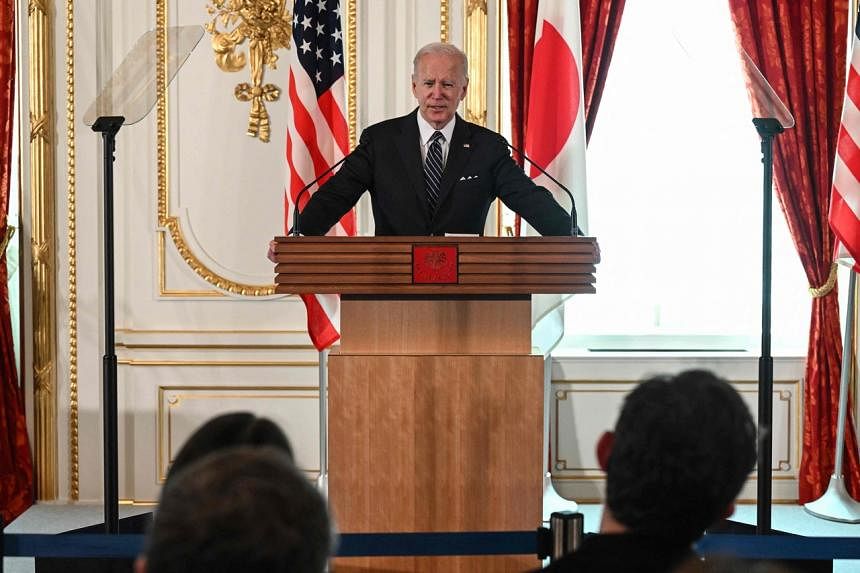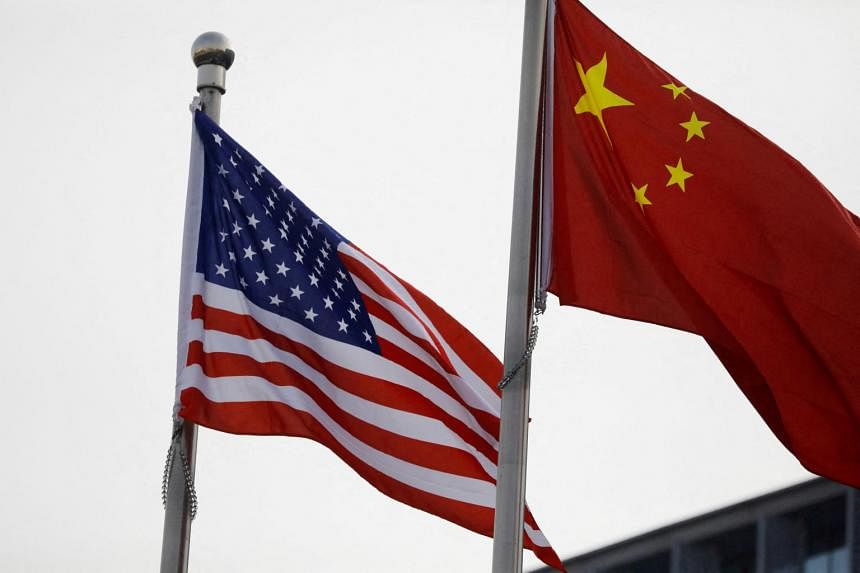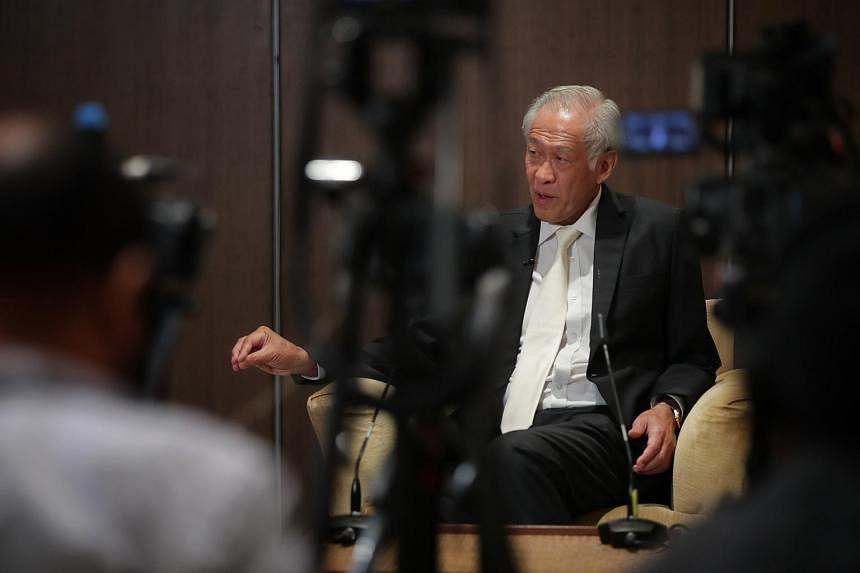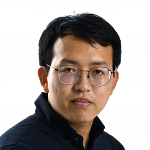- Joined
- Oct 19, 2008
- Messages
- 28,387
- Points
- 113
This fucking useless dictator has no authority to lecture other dictators on managing their respective dictatorship.
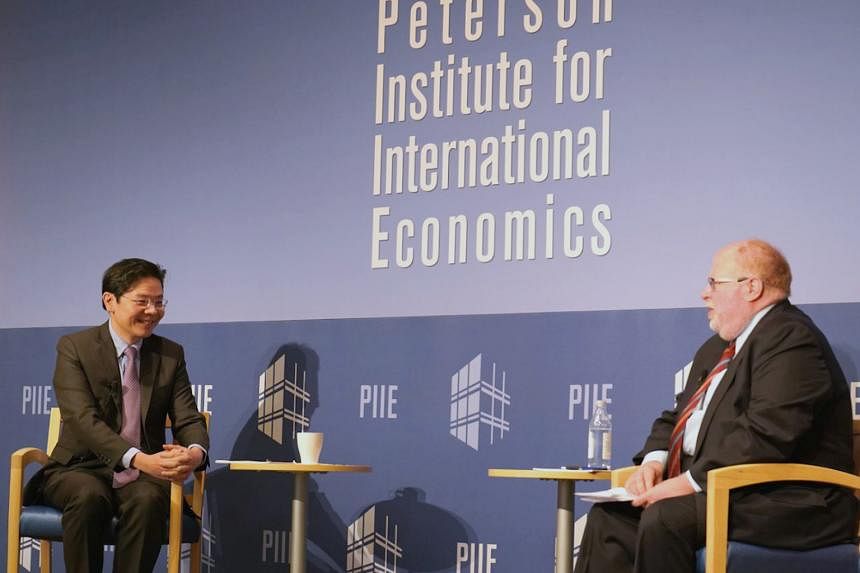
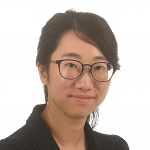
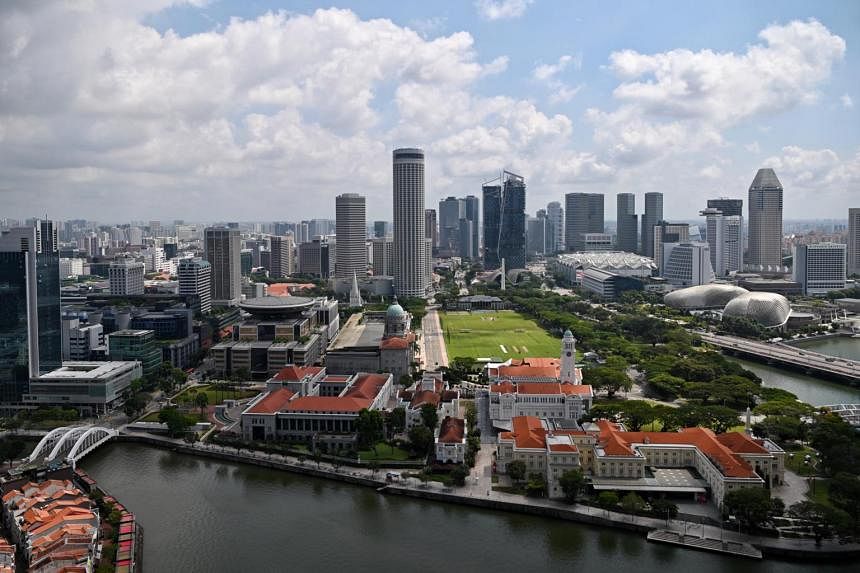


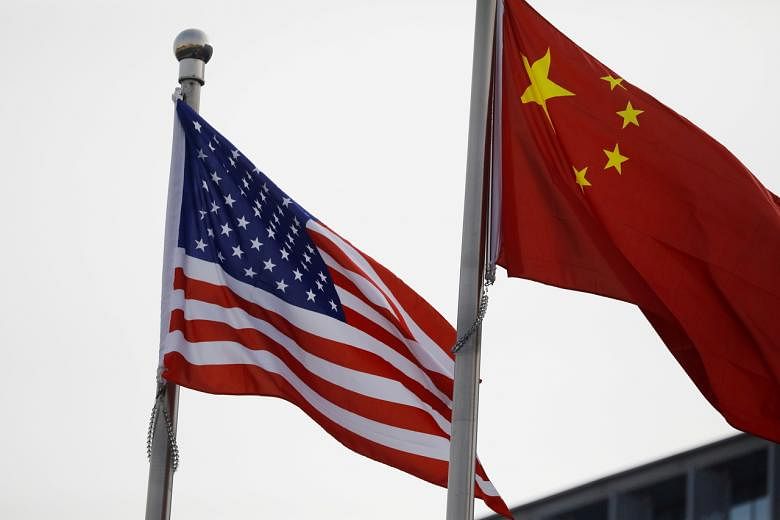

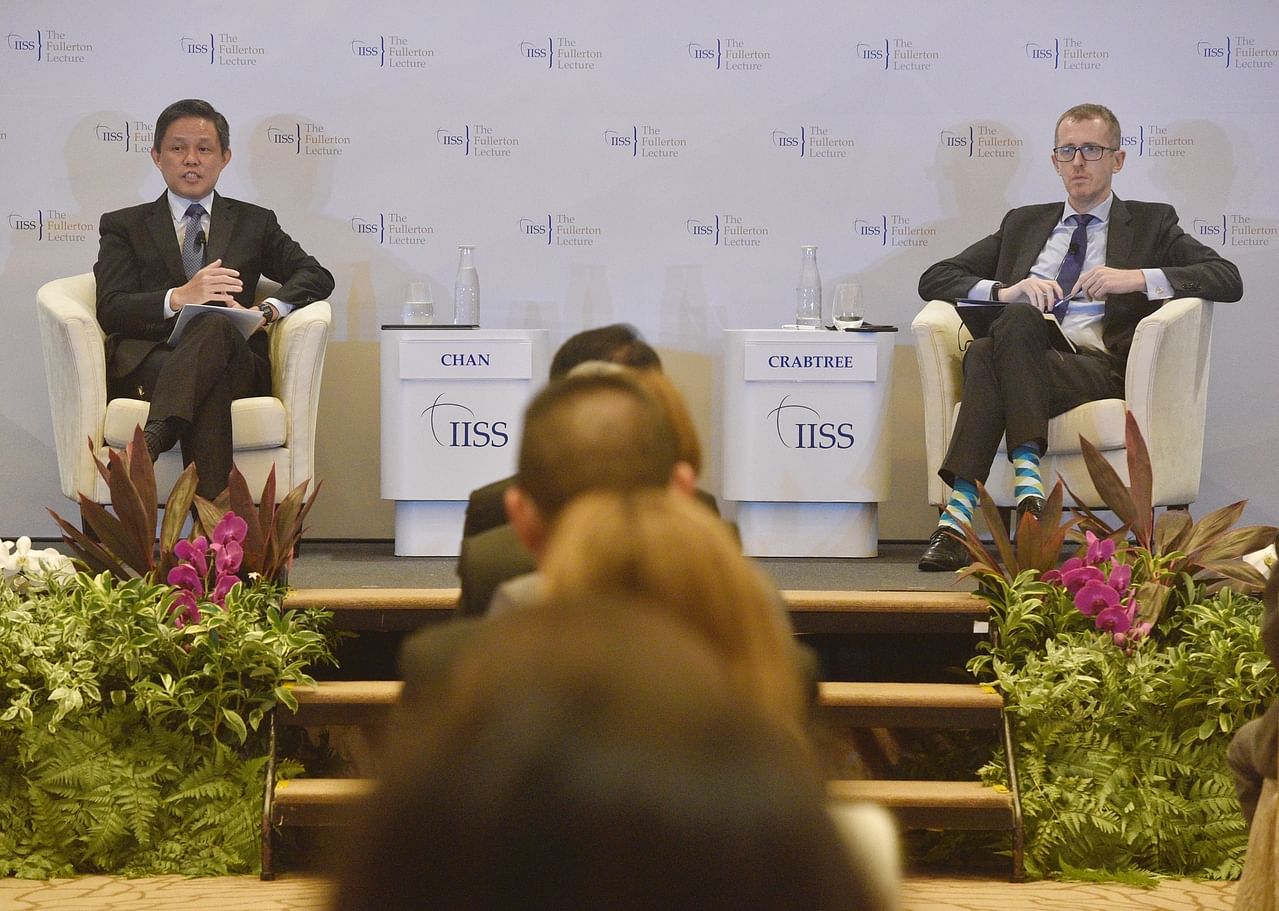
A man cheated. Of his rightful place.Singapore takes principled positions, not sides in US-China rivalry: Chan Chun Sing

Education Minister Chan Chun Sing said it was misleading to compare current US-China tensions with the US-Soviet Cold War competition. PHOTO: REUTERS

Justin Ong
Political Correspondent
NOV 10, 2021
SINGAPORE - In the face of great power rivalry between the United States and China, Singapore will choose principles and its own interests instead of taking sides without regard for issue and context.
The Republic also believes countries need to rise above their differences to work together on a global agenda for public health, sustainability and the digital economy, said Education Minister Chan Chun Sing.
He was speaking on Tuesday (Nov 9) at the 41st Fullerton Lecture organised by the International Institute for Strategic Studies (IISS), a London-based think-tank.
He said: "We take principled positions in our own long-term national interests to uphold the rule of international law in the global order, so that might does not equal right.
"When we decide our positions on this basis, we will then be the reliable, steadfast, and consistent partner that others have come to know us for, and what we stand for."
Principles such as an inclusive, open and connected global security and economic architecture, Mr Chan added, are key to Singapore's continued success.
Mr Chan's audience - about 150 people who attended in person at The Fullerton Hotel and hundreds more who joined virtually - was made up of business leaders, diplomats, policymakers and international affairs experts.
In his speech, Mr Chan called on countries to go beyond debate and come together to establish new norms for the digital commons.
He also suggested new and sustainable solutions for a greener world, and highlighted the need to pool resources to recover from the current Covid-19 pandemic, and also prepare for the next pandemic.
Since its founding, Singapore has committed to treasuring and stretching its limited resources to leave behind a better world for future generations, Mr Chan said, "possibly even before the term 'sustainability' entered popular lexicon".
Mr Chan's Fullerton Lecture is the latest in a series of talks on regional and global security issues.
It also featured a question-and-answer segment chaired by IISS-Asia executive director James Crabtree, who last week wrote a Straits Times commentary in which he said Mr Chan would be the first fourth-generation, or 4G, leader to give a major geopolitical speech in the wake of the pandemic.

Education Minister Chan Chun Sing and IISS-Asia Executive Director James Crabtree at the 41st Fullerton Lecture on Nov 9, 2021. ST PHOTO: DESMOND WEE
The minister was asked if his remarks suggested that Singapore was moving from simply not wanting to choose sides towards a more proactive stance in terms of wanting to support principles.
He replied that Singapore's inclination to consider each issue carefully and take principled positions was in fact a consistent approach throughout its history.
"We need to do that in order to maintain our credibility," he said. "It's a hard task. We have no illusions about it but if we are consistent, we are principled, we are trusted, I think it makes the job that much easier.
"We will continue to go on that trajectory to make ourselves relevant."
Earlier, during his speech, Mr Chan, who was trade and industry minister from 2018 till May this year, said the US and China have more common interests than they might perhaps wish to acknowledge.
These include ensuring global security and trading orders remain peaceful, stable and connected - even if the two major powers conceive "order" differently - and that strategic lines of communication stay open.
Mr Chan said: "Both are rational nuclear powers and know that war risks mutual assured destruction.
"Both need to secure their global supply chains. Both need the world as their markets. And both want to have secured and connected data flows and networks."
That is why their interdependence across several domains means that "total across-the-board" decoupling is unlikely, added Mr Chan.
"Both of them want to be respected by the other and the rest of the world. Neither would like to see conflict arise because of miscalculation."
Shared interests aside, the US and China are also grappling with similar domestic challenges, said Mr Chan, citing inequality, middle-class struggles, geographical disparity in economic development, and an increasing need to invest in new technologies and training of workers.
He also said it was misleading to compare current US-China tensions with the US-Soviet Cold War competition that spanned decades after World War II.
Where the US and the Soviet Union competed to see which of their differing political and economic systems would prevail, the US and China are both vital components of a single global system and compete within that system, Mr Chan said.
Mr Chan, who was Singapore Armed Forces chief of army before entering politics, said success will not be determined by who can knock the other down.
And neither country can decisively do that to the other without causing damage to oneself, he added.
Instead, the spoils will go to whoever can best "exercise global leadership through the power of their example, rather than the example of their power", Mr Chan said.
US President Joe Biden has twice in his 10-month term used similar language.
Mr Chan said to do so entails acting in enlightened, rather than narrow, self-interest - with the pandemic and climate change issues faced by nations everywhere being two examples.
"There is tremendous opportunity for both the US and China to focus on these global challenges... to win the world over."
The rest of the world, meanwhile, also has responsibility and agency to shape outcomes, he added.
"We can avoid a zero-sum mentality. It is a false dichotomy that one side must lose, for the other side to win. We can send a clear message that we will act on principle, and do not wish to be corralled into taking sides.
"Taking sides regardless of issues and context, breeds irrelevance. And if one is irrelevant, it will almost certainly require taking sides."


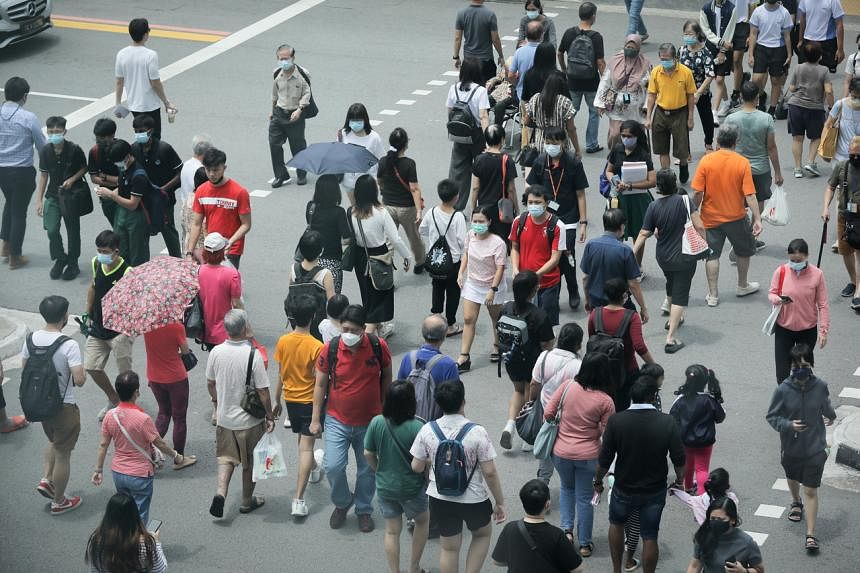
Forum: Natural for Chinese Singaporeans to have affinity for China
May 7, 2022
I find, however, former diplomat Bilahari Kausikan's warning that favourable views held by Chinese Singaporeans towards China "can undermine the multiracial and multicultural character of Singapore, and stress our social cohesion" to be an overreaction.
Wonder what the writer has to say about Indian influence on Singapore, CECA, Indians with fake degrees and vaccination certificates etc.
Forum: Hope for Chinese Singaporeans to objectively evaluate China's actions
May 10, 2022
Increasingly, they are consuming and being influenced by Chinese media outlets such as CGTN and the Global Times, which promote China's policies and interests.
The pride in China and being Chinese led some of my Chinese friends to opt for the Sinovac Covid-19 vaccine even though it offers lower levels of protection than the Western mRNA vaccines (Sinovac jabs not as effective in preventing severe disease: S'pore study, Dec 16, 2021).
Another thing that concerns me is how China has called on ethnic Chinese around the world to support China and its interests.
Vijayakumar P.T.
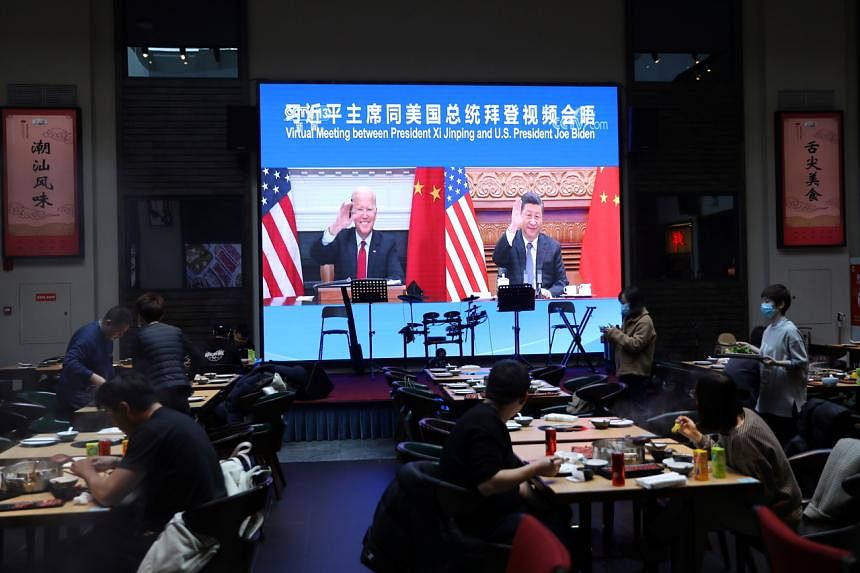
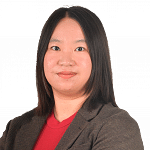
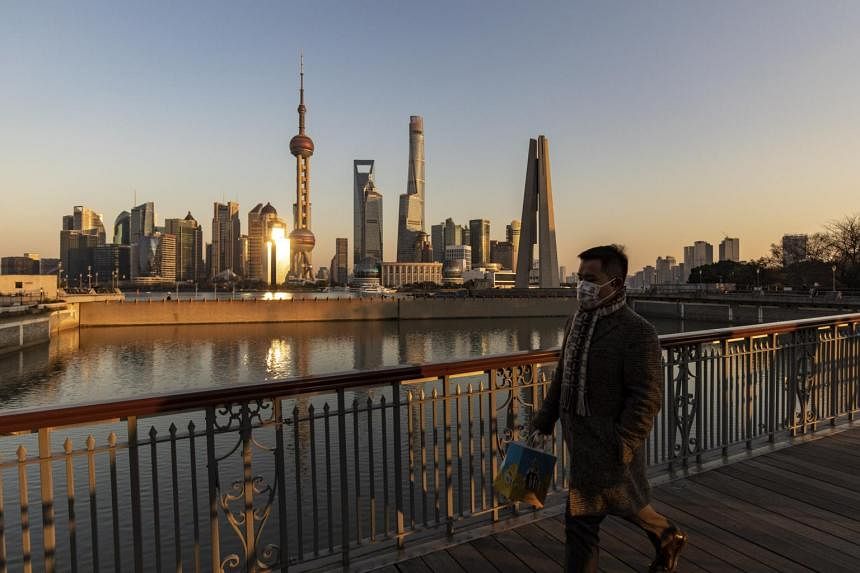
S'pore should prepare for up to 30 years of US-China rivalry: George Yeo
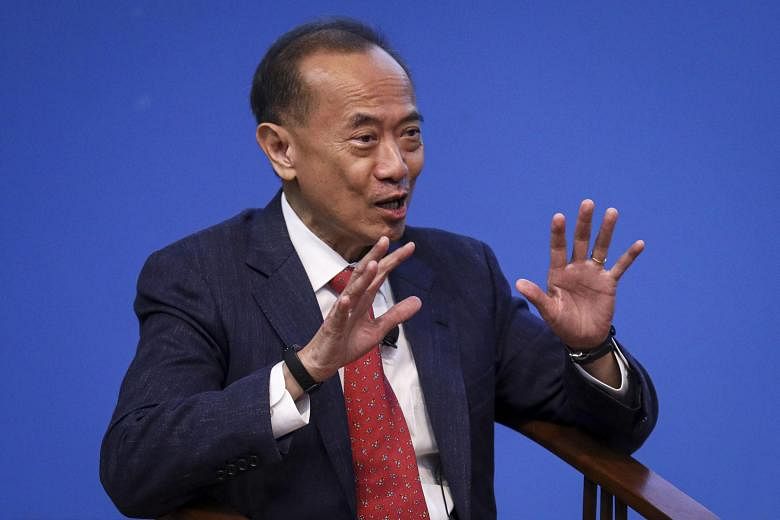
Former foreign minister George Yeo suggested that Singapore work on reconnecting with its South-east Asian neighbours and establishing its own identity. ST PHOTO: FELINE LIM

Justin Ong
Political Correspondent
JAN 11, 2022
SINGAPORE - Singapore should prepare for "easily" up to 30 years of competition between the United States and China, which could take the form of skirmishes off the sea or proxy wars, said former foreign minister George Yeo on Tuesday (Jan 11).
To avoid being caught in between and to maintain sovereignty, he suggested that Singapore work on reconnecting with its South-east Asian neighbours and establishing its own identity - one where being Singaporean means being "bigger" than just a nationality.
Mr Yeo, who is currently a visiting scholar at the Lee Kuan Yew School of Public Policy, was speaking as a panellist at a curtain-raiser for the annual Singapore Perspectives conference organised by the Institute of Policy Studies think-tank.
This year's event, with the theme "City", comprises seven virtual forums on Jan 13 and 17, and a physical conference on Jan 24.
Asked by moderator and ambassador-at-large Chan Heng Chee if he saw Singapore being among the great cities in the region and the world in the next two decades or so, Mr Yeo said that if the Republic can position itself well in a flourishing Asia, its prospects would be bright.
"There's no guarantee because we're in competition with others. There's always the possibility that we may make bad mistakes," he added.
"For example, the current tension between the US and China will mark this period of history and it will go on for years to come… sometimes high tension, sometimes low tension."
Mr Yeo said that if Singapore remains just a city-state, it would find itself frequently between a rock and a hard place.
Singapore thus needs to organically "reroot" itself in the region and become a capital city of Asean, he added, noting Singapore's links to other members of the 10-nation bloc through their sizeable communities here.
Working through Asean, Singapore can better navigate the big powers - not by taking sides, but by leaning "a little to the other side" in the event anyone pushes Singapore too hard.
Mr Yeo said Singapore's leaders must have the foresight to steer the nation away from potential conflict and danger.
"We are part of many networks - the American network, the Chinese network, the Indian network. And every network has to capture us, naturally, so we have to be careful," he cautioned. "We are friendly to everybody, but we are autonomous."
Also taking part in the in-person panel discussion was former chief city planner Liu Thai Ker, though their audience was an online one. Viewers could submit questions - one of which was how Singapore could thrive amid conflicting spheres of influence between China and the US.
Mr Yeo said the challenge for the country - where about three-quarters of the population identify as ethnically Chinese - was not outside but "inside".
"Who are we as Singaporeans?" he asked. "Is Singapore just a facility, a convention centre, a good hotel, a restaurant - or is it something more? Does it stand for values which others are happy to associate with?"
Mr Yeo added: "Singapore is special because our different communities retain their ancestral cultures… and we encourage them to be proud of their ancestral cultures. Our diversity is not based upon everybody curbing themselves to become Singaporean, but everybody being bigger in accepting others who are not like themselves.
"If we can make this happen - that to be Singaporean is to be bigger than what you were when you were in China or India or Indonesia or Thailand… then to be a Singaporean is to become bigger."
Mr Yeo said this, and questions around how Singaporeans relate to one another, was something to think deeply about.
"The more comfortable we are with our own identity, the more open we'll be," he said. "If I know who I am, I can accept you for who you are… So identity is important, and Singapore's identity is complicated because it is made up of constituent identities."
